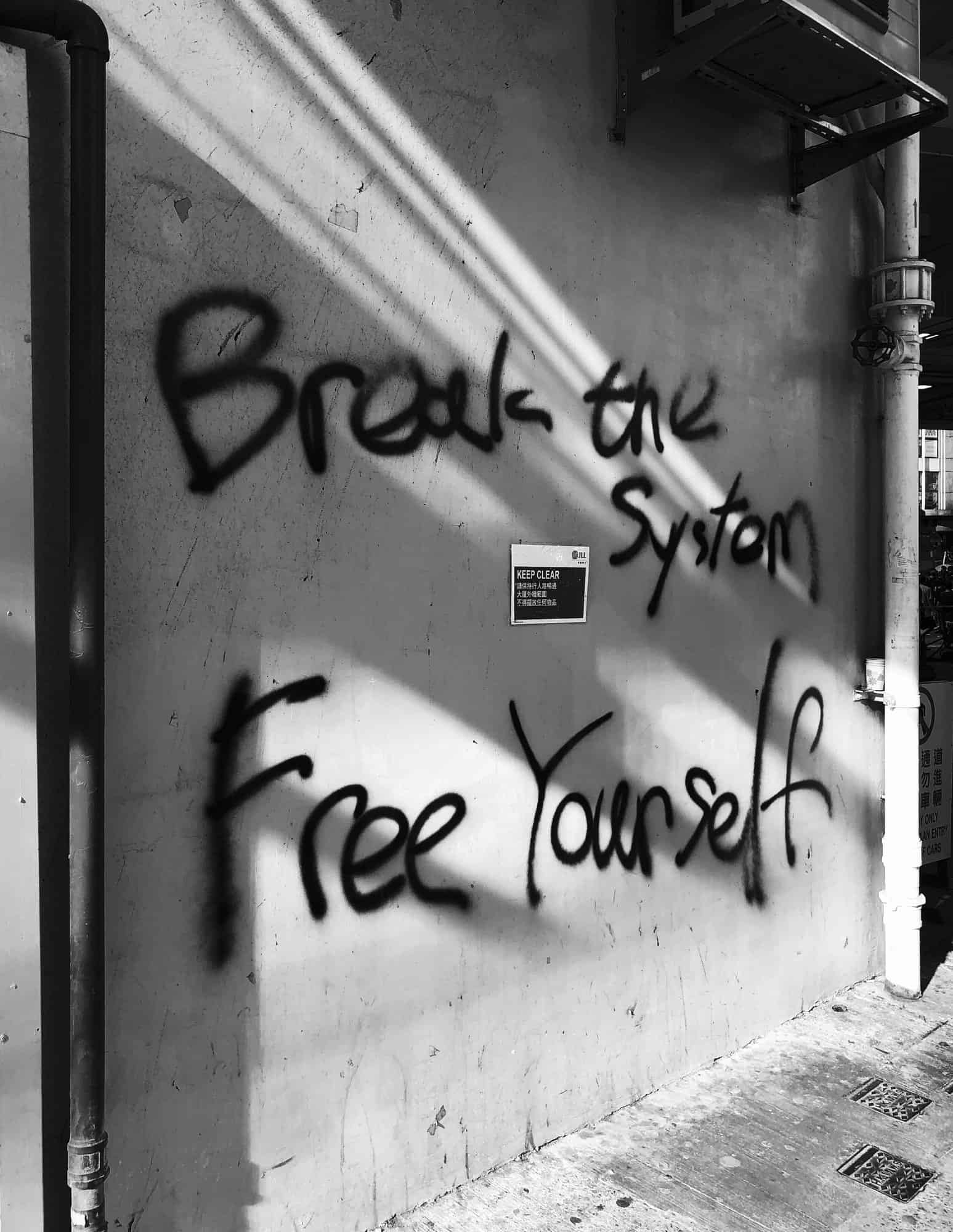Several years ago I worked for Inland Revenue’s child support debt recovery team. My role was to engage parents who fell behind in paying their child support and attempt to secure a commitment to pay their debt.
As you might imagine, this was a difficult and challenging job. It’s rare that people want to hear from an Inland Revenue debt collector. And some really don’t want to hear from you!
Many recognised their obligations but had genuine difficulty meeting them. Some wanted to do what was right. Others contested what was right. Some were indifferent about it all. Others were distressed and outright hostile, burdened by a deep sense of injustice. And occasionally, some people pleasantly surprised you.
It’s quite similar when engaging our culture with the gospel.
Our society consists of diverse people from diverse backgrounds, having diverse beliefs, diverse problems and experiences. But if we imagine every non-Christian is hostile, our thinking will be shaped more by our assumptions than by reality. That will tend to produce one of two responses: fight or flight. Avoid or avenge.
Some people certainly are hostile; but many aren’t. Some are friendly and polite, but indifferent. Some are ‘spiritual’ but not religious. Some are ‘religious’ but not spiritual. Some are wounded and weary. All are made in God’s image and in need of God’s grace.
So why and how should we engage our culture with the gospel, a message it often thinks it doesn’t need?
Why we should engage
Quite simply, Jesus our Lord expects us to.
Teaching the crowds and his disciples, Jesus said: “You are the salt of the earth, but if salt has lost its taste, how shall its saltiness be restored? It is no longer good for anything except to be thrown out and trampled under people’s feet.”1
Jesus also commands us to. “You are the light of the world. A city on a hill cannot be hidden… In the same way, let your light shine before others, so that they may see your good works and give glory to your Father who is in heaven.”2
The life of faith isn’t meant to be secreted behind closed doors or buried in the ground, as the fearful servant in the parable of the talents discovered. His master assessed him as wicked, lazy and worthless.3
Rather, Christians and the church shine as lights in the midst of a crooked and twisted generation.4
The early church was subject to intense hostility at times, initially from misplaced Jewish zeal and then from the Roman channels of power and its supporters. It was this environment and beyond that Jesus sent his workers into, cultivating and extracting his plentiful harvest.
In our country it’s rare for a Christian’s life to be genuinely threatened solely because of our faith. Other forms of hostility are evident, like ‘cancel culture’. This happens when the masses publicly shame anyone who goes against the grain of the current tide of progressive values, especially those with a high-profile platform. Boycotts, memes and insults are shared, liked and spread via social media in order to invalidate or ‘cancel’ that person. A bit like what the crowds, egged on by the Jewish leaders, tried to do to Jesus and the early church.
Cancel culture, as well as cultural indifference to the gospel in general, are not exemptions to the command and mission of Christ. We live in the world as it is, and not as we’d like it to be.
But it certainly can be difficult.
Why it’s difficult
Two broad challenges make it difficult for us today; one external and the other internal.
First, externally, our culture is often described now as post-Christian. Much of modern western society, and sadly even the western church, believes it has outgrown the historic Christian faith it was profoundly shaped by. The Bible and its message are assumed to be obsolete and irrelevant, made redundant by scientific and technological development paired with an individualistic mind-set, the ultimate aim of which is self-expression and self-fulfilment.
In this cultural context, some argue that religious belief is oppressive or even dangerous, and oppose it vigorously. Others are willing, in theory at least, to tolerate religion to the extent that it doesn’t interfere with cultural progress or impinge upon individual rights and freedoms. But if it does, look out.
It’s certainly difficult to engage a culture that assumes it knows what the gospel is and doesn’t see a need for it.
A second challenge is inward, within our own hearts and minds. This is always the primary challenge.
We see Christian virtue continually being eroded. Society’s moral compass has shifted. We fear the further loss of influence in and access to the public square. Our hearts and minds succumb to a defeatist mentality, as though Christ is no longer Lord.
With this mind-set cultural engagement seems like an exercise in futility and beats a sullen and defeated retreat. It may even lead you to think that Christianity is irrelevant and should be kept private.
These challenges aren’t really new. The internal and external struggles are a part of life in a fallen world. The pre-Christian world disdained the message of Christ crucified as much as many in our post-Christian society do today.
So what encouragement and resources do we have, then, for engaging our culture?
How we overcome
Since I’ve been in New Zealand, I’ve discovered that it’s near impossible to convince Kiwis that Australian Rules football is far superior to rugby or soccer. For some reason, they don’t want to listen!
In a similar way, people are unlikely to engage with Christianity simply because we assert it to be true and right. This kind of engagement lends itself to an adversarial approach. Few have the inclination for it.
For example, several years ago I had a discussion with a couple who asked me about homosexuality. My answer began with, “Well, the Bible says…” This answer didn’t resonate with them for the simple reason that they didn’t believe the Bible. In their eyes, the Bible isn’t God’s word, through which God speaks. Rather, they saw it as an ancient book that is no longer relevant.
What led them to ask the question, though, was that they had noticed that people in our church take their faith seriously. They never saw this in the state church in their own country.
This is what Jesus means when he says ‘Let your light shine.’ Live your faith consistently and with integrity. Nothing undermines your credibility more than hypocrisy.
Recognise also that cultural engagement requires a prepared heart. That means knowing Christ as Lord of all and that he is Lord of your heart. The heart that knows Christ as Lord is humble before him and also before other people, because we are sinners saved by grace alone. Yet it is also bold, because nothing can separate us from the love of Christ. It is therefore able to give an answer with gentleness and respect to anyone who asks for the reason we have hope.5
To face hostility you need a heart that finds its security in God – not in yourself or a comfortable world or a government you like or anything else. This we have in Christ alone. He is Lord.
One of my favourite sayings in Scripture is ‘Don’t be afraid.’ Ask the Lord to impress upon your heart just how good he is and how secure you are in his loving hand.
Some hopefully helpful hints
I think many of us would love to engage our culture more than we do, but believe we lack the right words to do so. We’re not really sure how to go about it or what answers to give to tricky questions.
Here are some tips I’ve picked up and try to put into practise.
Ask people about their experience of church. I’m always amazed at how many people grew up in a church or have had some exposure to it.
Just recently, I met with a film-maker who has made a documentary aimed at keeping kids safe online, something that is much needed today. During our discussion he mentioned that he had been raised in a church and was super-keen for a while. Well, that’s an invitation to probe! But with gentleness and respect of course.
So I asked what made him leave. In his extensive travels overseas, he concluded that faith is culturally conditioned; if you were born in a predominantly Islamic country, you’re likely to be a Muslim; likewise for a Buddhist or a Hindu or a Christian.
“But wouldn’t that mean that your film is just an exercise in cultural conditioning?” I asked. And that led to a good discussion about morals and whether we can have morals without God.
Did he become a Christian? Not that I know of. But that’s not up to me or you. Hopefully it will lead to another discussion and an opportunity to speak more of Christ. Regardless of whether he becomes a believer or not, though, cultural engagement has happened. Light has been given.
Another approach is to tell people why you are a Christian, or how knowing Jesus has changed or benefitted you.6 What difference has following Jesus made to how you see yourself and the world?
Telling people you are a Christian or that you go to church can be enhanced by also sharing what you love about it. The hopes, desires and longings of the human heart – love, joy, truth, peace, justice7 – are ultimately found in Christ and are addressed in God’s word.
For example, I didn’t really know what love was, or how to love, until I discovered God’s love in Jesus. I thought I knew. But what I knew was actually self-love, which is not really love at all. And having discovered God’s love, I realise I’ve still got a lot to learn.
And when you come up against that person who wants to nail you with their seemingly brilliant defeater argument or accuse you of bigotry, you can simply ask: “But what if there’s more to it than you realise? Why do you think justice matters? Why is love better than hate? Why should anyone be kind? Why do you believe that?” Listen carefully and agree where you can. To get a hearing you often need to give one.
Asking good, thoughtful questions can sometimes disarm an aggressive interlocutor and lead to meaningful engagement. But not always! And in that case, then it’s wiser to not answer a fool according to his folly lest you be like him yourself.8
And for that especially obnoxious or ignorant person,9 I might say, again, with gentleness and respect: “Do you want to be a wise person or a foolish person, an informed person or an ignorant person?”10
Conclusion
With regard to what we say, there’s no cookie cutter approach to cultural engagement.
With regard to how and why we engage, be guided by God’s word and let the Lord rule your heart and mind.
And remember what Jesus says in John 16:33, “In the world you will have tribulation. But take heart; I have overcome the world.”
Notes
1 Matt 5:13
2 Matt 5:14-16
3 Matt 25:14-30
4 Phil 2:15
5 1 Pet 3:15
6 See Mark 5:19
7 People in our culture misconstrue these and look for them in things and ways that can’t provide them. But they know they want them and desire them greatly.
8 Prov 26:4
9 See Prov 26:5
10 This would be a question that I would ask to anyone who says Christians, Jews and Muslims worship the same God or that religion causes wars.
Mr Ben McDonald is the minister of the Reformed Church in Wellington.
Image
Photo by Pop and Zebra on Unsplash

